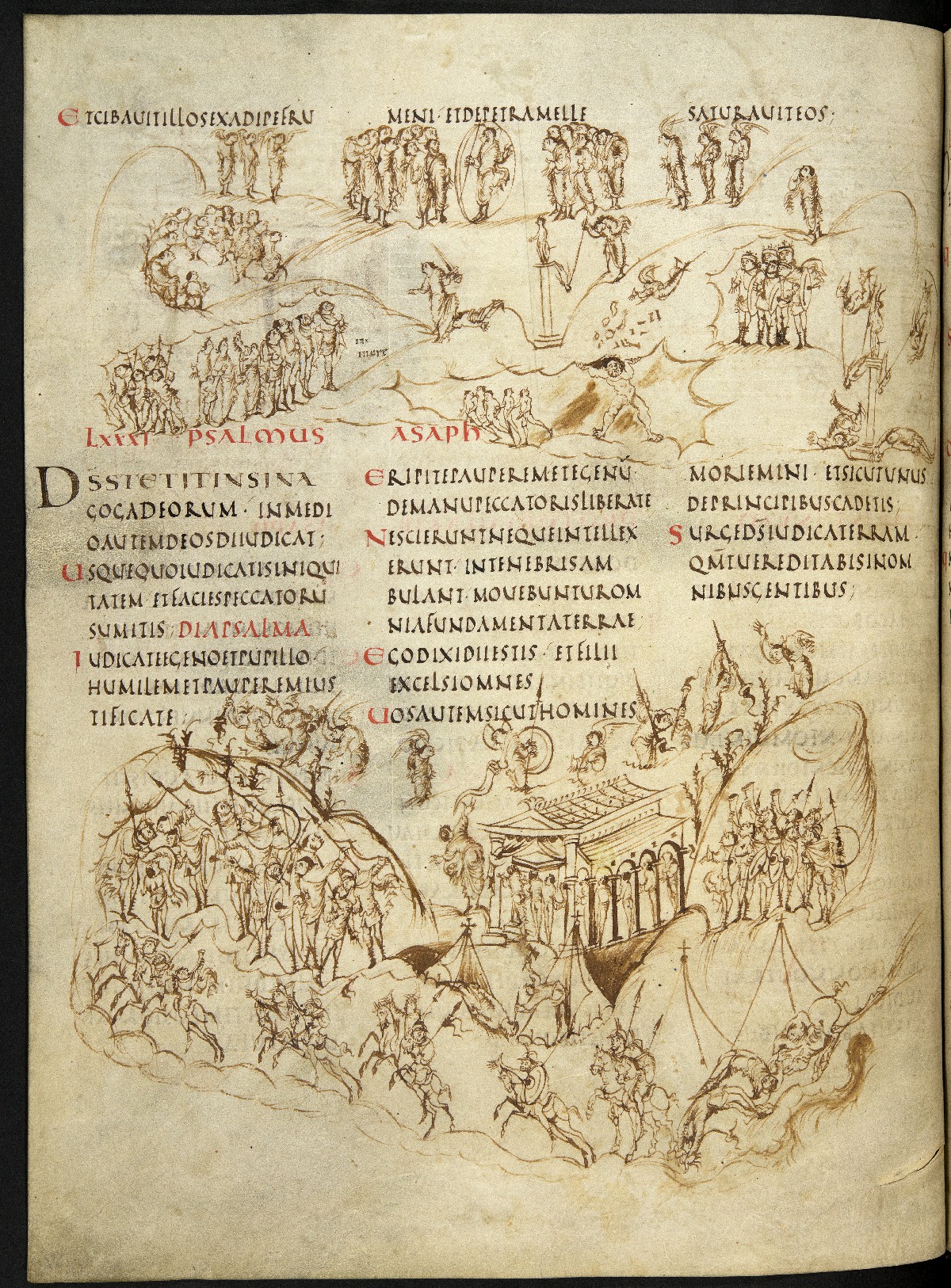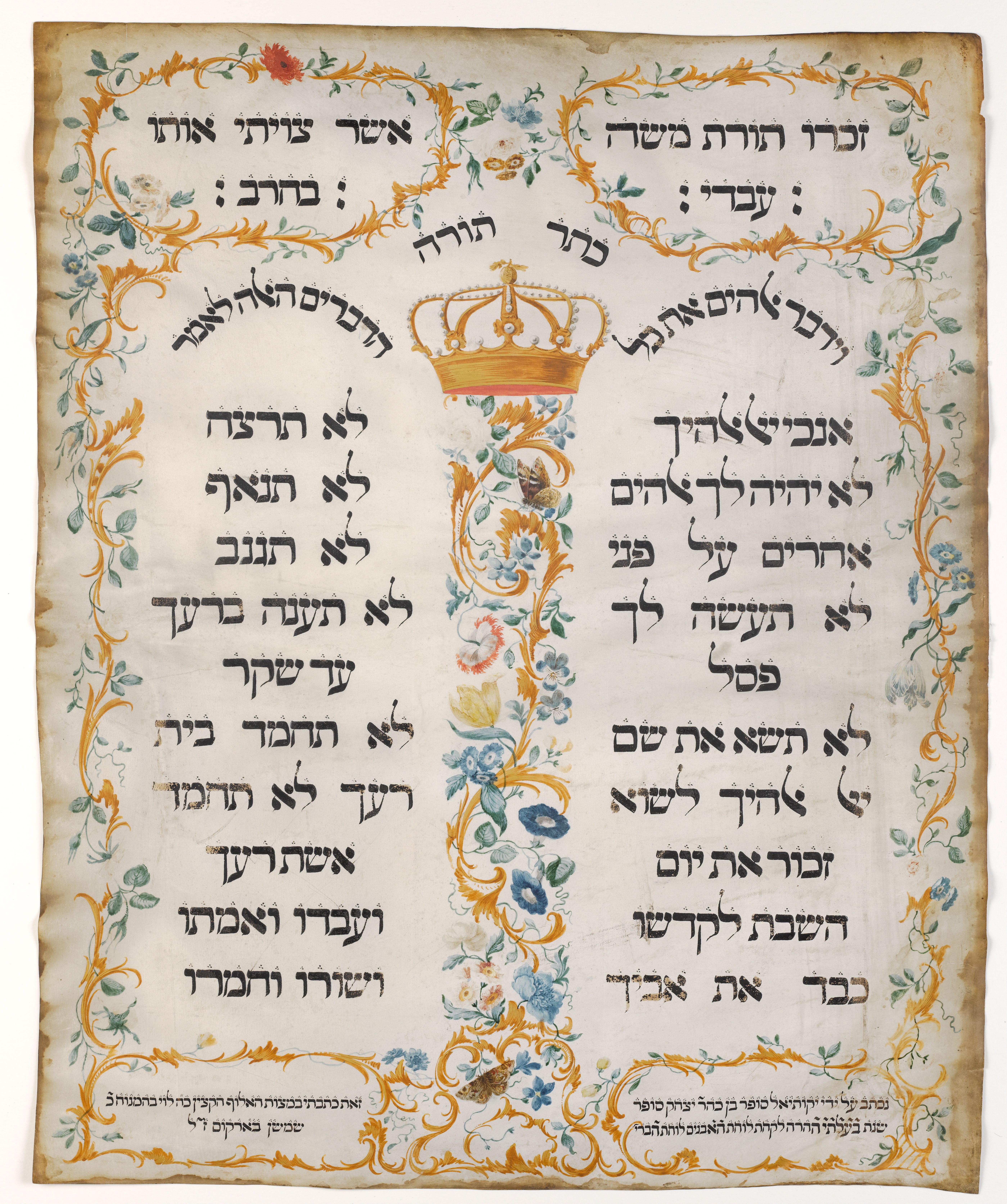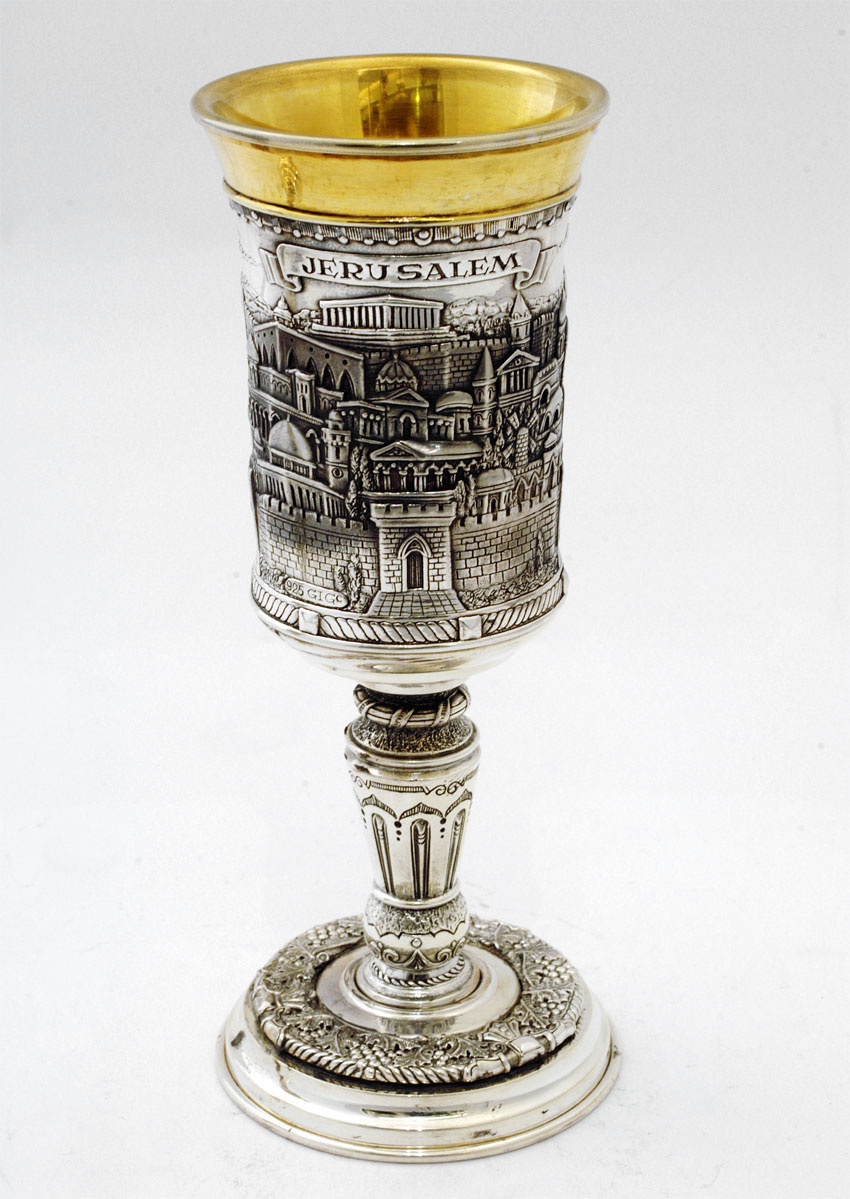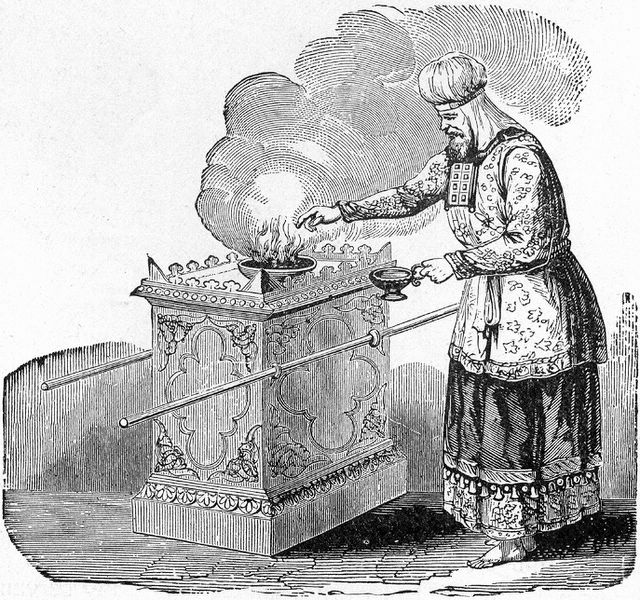|
Psalm 81
Psalm 81 is the 81st psalm of the Book of Psalms, beginning in English in the King James Version: "Sing aloud unto God our strength". In the slightly different numbering system used in the Greek Septuagint and Latin Vulgate translations of the Bible, this psalm is Psalm 80. In Latin, it is known as "Exultate deo adiutori nostro". It is one of the 12 Psalms of Asaph. Its themes relate to celebration and repentance. In the New King James Version its sub-title is "An Appeal for Israel's Repentance". The psalm forms a regular part of Jewish, Catholic, Lutheran, Anglican and other Protestant liturgies. It has been set to music. Commentary The reference to the new moon and full moon as well as the blowing of the trumpet in verse 3 may reflect the celebration of New Year and Tabernacles. The teaching of verses 9 and 10 is similar to the beginning of the Decalogue, although 'the words for "strange" god and "foreign" god are different from the "other gods" in Exodus 20 and Deutero ... [...More Info...] [...Related Items...] OR: [Wikipedia] [Google] [Baidu] |
Book Of Psalms
The Book of Psalms ( , ; ; ; ; , in Islam also called Zabur, ), also known as the Psalter, is the first book of the third section of the Tanakh (Hebrew Bible) called ('Writings'), and a book of the Old Testament. The book is an anthology of Hebrew religious hymns. In the Jewish and Western Christian traditions, there are 150 psalms, and several more in the Eastern Christian churches. The book is divided into five sections, each ending with a doxology, a hymn of praise. There are several types of psalms, including hymns or songs of praise, communal and individual laments, royal psalms, imprecation, and individual thanksgivings. The book also includes psalms of communal thanksgiving, wisdom, pilgrimage and other categories. Many of the psalms contain attributions to the name of King David and other Biblical figures including Asaph, the sons of Korah, Moses and Solomon. Davidic authorship of the Psalms is not accepted as historical fact by modern scholars, who view it a ... [...More Info...] [...Related Items...] OR: [Wikipedia] [Google] [Baidu] |
Ten Commandments
The Ten Commandments (), or the Decalogue (from Latin , from Ancient Greek , ), are religious and ethical directives, structured as a covenant document, that, according to the Hebrew Bible, were given by YHWH to Moses. The text of the Ten Commandments appears in three markedly distinct versions in the Bible: at Exodus , Deuteronomy , and the " Ritual Decalogue" of Exodus . The biblical narrative describes how God revealed the Ten Commandments to the Israelites at Mount Sinai amidst thunder and fire, gave Moses two stone tablets inscribed with the law, which he later broke in anger after witnessing the worship of a golden calf, and then received a second set of tablets to be placed in the Ark of the Covenant. Scholars have proposed a range of dates and contexts for the origins of the Decalogue. “Three main dating schemes have been proposed: (1) it was suggested that the Decalogue was the earliest legal code given at Sinai, with Moses as author, and the Amphictyony con ... [...More Info...] [...Related Items...] OR: [Wikipedia] [Google] [Baidu] |
Hoshia Et Amecha
''Pesukei dezimra'' (; Rabbinic Hebrew: ''pasuqẽ hazzǝmiroṯ'' "Verses of songs"), or ''zemirot'' as they are called by the Spanish and Portuguese Jews, are a group of prayers that may be recited during Shacharit (the morning set of prayers in Judaism). They consist of various berakha, blessings, psalms, and sequences of other Biblical verses. Historically, reciting pesuqe dezimra in morning prayer was only practiced by the especially pious. Throughout Jewish history, their recitation has become widespread among the various rites of Jewish prayer. The goal of ''pesukei dezimra'' is for the individual to recite praises of God in Judaism, God before making the requests featured later in Shacharit and the day. Origin The first source for ''pesuke dezimra'' is in the Babylonian Talmud, where it is described as non-obligatory (performed by some people but not others): Later commentaries explain what ''pesuke dezimra'' consists of: Rashi said it means psalms 148 and 150, Saadia G ... [...More Info...] [...Related Items...] OR: [Wikipedia] [Google] [Baidu] |
Amidah
The ''Amidah'' (, ''Tefilat HaAmidah'', 'The Standing Prayer'), also called the ''Shemoneh Esreh'' ( 'eighteen'), is the central prayer of Jewish liturgy. Observant Jews recite the ''Amidah'' during each of the three services prayed on weekdays: Morning (''Shacharit''), afternoon ('' Mincha''), and evening ('' Ma'ariv''). On Shabbat, Rosh Chodesh ("Beginning of the Month"), and Jewish festivals, a fourth ''Amidah'' ('' Mussaf'') is recited after the morning Torah reading. Once annually, a fifth ''Amidah'' ('' Ne'ilah'') is recited around sunset on Yom Kippur. Due to the importance of the ''Amidah'', in rabbinic literature, it is simply called "''hatefila''" (, "the prayer"). According to legend, the prayer was composed by the "Men of the Great Assembly" (''Anshei Knesset HaGedolah''; –332 BCE). However, the fact that the prayer contains, next to Biblical Hebrew, many mishnaic terms, leads to the conclusion that it was composed and compiled during the mishnaic period ... [...More Info...] [...Related Items...] OR: [Wikipedia] [Google] [Baidu] |
Mussaf
Mussaf (also spelled Musaf or Musof) is an additional service that is recited on Shabbat, Yom Tov, Chol Hamoed, and Rosh Chodesh. The service, which is traditionally combined with the Shacharit in synagogues, is considered to be additional to the regular services of Shacharit, Mincha, and Maariv. In contemporary Hebrew, the word may also signify a newspaper supplement. During the days of the Holy Temple, additional offerings were offered on these festive days. Mussaf is now recited in lieu of these offerings. ''Mussaf'' refers to both the full service (which includes the Amidah and all Jewish prayers that follow that are normally recited during Shacharit) and the Amidah itself that is recited for Mussaf. The main addition is a fourth blessing of the Amidah specially for these days. The correct time to recite musaf is until the seventh Halachic hour of the day (when the day is divided up into twelve-hour parts); however, it is proper to begin musaf before 6.5 relative hou ... [...More Info...] [...Related Items...] OR: [Wikipedia] [Google] [Baidu] |
Kiddush
Kiddush (; ), , is a blessing recited over wine or grape juice to sanctify the Shabbat and Jewish holidays. Additionally, the word refers to a small repast held on Shabbat or festival mornings after the prayer services and before the meal. Significance The Torah refers to two requirements concerning Shabbat – to "keep it" and to "remember it" (''shamor'' and ''zakhor''). Jewish law therefore requires that Shabbat be observed in two respects. One must "keep it" by refraining from thirty-nine forbidden activities, and one must "remember it" by making special arrangements for the day, and specifically through the ''kiddush'' ceremony. Reciting ''kiddush'' before the meal on the eve of Shabbat and Jewish holidays is thus a commandment from the Torah (as it is explained by the Oral Torah), although one can also fulfill the Biblical commandment by reciting Maariv of the Sabbath which also mentions the holiness of the day. Reciting ''kiddush'' before the morning meal on Shabbat ... [...More Info...] [...Related Items...] OR: [Wikipedia] [Google] [Baidu] |
Shema
''Shema Yisrael'' (''Shema Israel'' or ''Sh'ma Yisrael''; , “Hear, O Israel”) is a Jewish prayer (known as the Shema) that serves as a centerpiece of the morning and evening Jewish prayer services. Its first verse encapsulates the monotheistic essence of Judaism: "Hear, O Israel: YHWH our God, YHWH is one" (), found in . The first part can be translated as either "The our God" or "The is our God", and the second part as either "the is one" or as "the one " (in the sense of "the alone"), since Hebrew does not normally use a copula in the present tense, so translators must decide by inference whether one is appropriate in English. The word used for "the " is the tetragrammaton YHWH. Observant Jews consider the ''Shema'' to be the most important part of the prayer service in Judaism, and its twice-daily recitation as a ''mitzvah'' (religious commandment). Also, it is traditional for Jews to say the ''Shema'' as their last words, and for parents to teach their children ... [...More Info...] [...Related Items...] OR: [Wikipedia] [Google] [Baidu] |
Tamid
Tamid () is the ninth tractate in Kodashim, which is the fifth of the six orders of the Mishnah, Tosefta, and the Talmud. The main subject of Tamid is the morning and evening burnt offerings (; ), but it also deals with other Temple ceremonies. The tractate includes information about the Temple Service from sages who had been present at the Temple and witnessed the service. This tractate contains few disagreements between the sages and few exegetical derivations. It is written as a historical description of the service. Mishnah The Mishnah on Tamid is divided into seven chapters (six in Lowe's edition of the Mishnah), containing 34 paragraphs in all: * Chapter 1: The priests kept watch in three places in the Temple; where the young priests were on guard, and where the older ones slept who held the keys (§ 1); all who sought admission to remove the ashes from the altar were obliged to prepare themselves by a ritual bath before the officer appeared; when he appeared and when he ... [...More Info...] [...Related Items...] OR: [Wikipedia] [Google] [Baidu] |
Sukkot
Sukkot, also known as the Feast of Tabernacles or Feast of Booths, is a Torah-commanded Jewish holiday celebrated for seven days, beginning on the 15th day of the month of Tishrei. It is one of the Three Pilgrimage Festivals on which Israelites were commanded to make a pilgrimage to the Temple in Jerusalem. Biblically an autumn harvest festival and a commemoration of the Exodus from Egypt, Sukkot's modern observance is characterized by festive meals in a sukkah, a temporary wood-covered hut. The names used in the Torah are "Festival of Ingathering" (or "Harvest Festival", ) and "Festival of Booths" (). This corresponds to the double significance of Sukkot. The one mentioned in the Book of Exodus is agricultural in nature—"Festival of Ingathering at the year's end" ()—and marks the end of the harvest time and thus of the agricultural year in the Land of Israel. The more elaborate religious significance from the Book of Leviticus is that of commemorating the Exodus and the de ... [...More Info...] [...Related Items...] OR: [Wikipedia] [Google] [Baidu] |
Rosh Hashanah
Rosh Hashanah (, , ) is the New Year in Judaism. The Hebrew Bible, biblical name for this holiday is Yom Teruah (, , ). It is the first of the High Holy Days (, , 'Days of Awe"), as specified by Leviticus 23:23–25, that occur in the late summer/early autumn of the Northern Hemisphere. Rosh Hashanah begins Ten Days of Repentance, ten days of penitence culminating in Yom Kippur, as well as beginning the cycle of autumnal religious festivals running through Sukkot which end on Shemini Atzeret in Israel and Simchat Torah everywhere else. Rosh Hashanah is a Jewish holidays#Second day of biblical festivals, two-day observance and celebration that begins on the first day of Tishrei, which is the seventh month of the Hebrew calendar#New year, ecclesiastical year. In contrast to the ecclesiastical Lunar New Year#Middle East/West Asia, lunar new year on the first day of the first month Nisan, the spring Passover month which marks Israel's exodus from Egypt, Rosh Hashanah marks the beginn ... [...More Info...] [...Related Items...] OR: [Wikipedia] [Google] [Baidu] |
Thursday
Thursday is the day of the week between Wednesday and Friday. According to the ISO 8601 international standard, it is the fourth day of the week. In countries which adopt the "Sunday-first" convention, it is the fifth day of the week. Name Thunor's day The name is derived from Old English ''þunresdæg'' and Middle English ''Thuresday''. It was named after the Old English god ''Thunor''. ''Thunor'' and ''Thor'' are derived from the name of the Germanic god of thunder, *''Thunraz'', equivalent to Jupiter (mythology), Jupiter in the ''interpretatio romana''. In most Romance languages, the day is named after the Roman god Jupiter (mythology), Jupiter, who was the god of sky and thunder. In Latin, the day was known as ''Iovis Dies'', "Jupiter's Day". In Latin, the genitive or possessive case of Jupiter was ''Iovis''/''Jovis'' and thus in most Romance languages it became the word for Thursday: Italian language, Italian ''giovedì'', Spanish language, Spanish ''jueves'', French lan ... [...More Info...] [...Related Items...] OR: [Wikipedia] [Google] [Baidu] |
Shir Shel Yom
''Shir Shel Yom'' (שִׁיר שֶׁל יוֹם), meaning "'song' .e. Psalmof [the">Psalm">.e._Psalm<_a>.html" ;"title="Psalm.html" ;"title=".e. Psalm">.e. Psalm">Psalm.html" ;"title=".e. Psalm">.e. Psalmof [theday [of the week]" consists of one psalm recited daily at the end of the Jewish morning prayer services known as shacharit; in the Italian rite they are recited also at Mincha and before Birkat Hamazon. Each day of the week possesses a distinct psalm that is referred to by its Hebrew name as the ''shir shel yom'' and each day's ''shir shel yom'' is a different paragraph of Psalms. Although fundamentally similar to the Levite's song that was sung at the Holy Temple in Jerusalem in ancient times, there are some differences between the two. Songs for the days of the week * Sunday: Psalm 24Rabbi Nosson Sherman, ''The Complete Artscroll Siddur'', Mesorah Publications, 1984, pp. 162-169 References {{Jewish prayers Shacharit Jewish liturgical poems Hebrew w ... [...More Info...] [...Related Items...] OR: [Wikipedia] [Google] [Baidu] |






